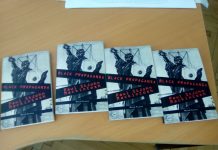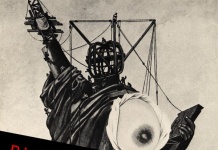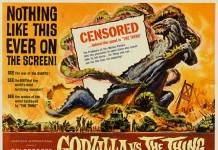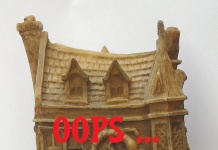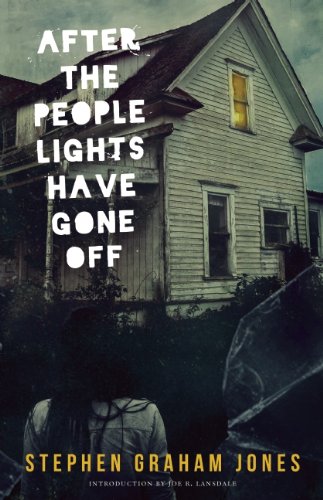 This collection by Stephen Graham Jones has been cropping up on slate after slate for this year’s awards, with Best Collection nominations in the Bram Stoker Awards and Shirley Jackson Awards, and a win as Best Collection from This Is Horror. After the People Lights Have Gone Off comprises 15 very diverse stories, quite a few of which will already be familiar from other highly regarded anthologies. Dark House Press have done their usual sterling job with excellent production values, including some superb chapter heading illustrations by Luke Spooner. Which is quite something for a collection where you’d hesitate to describe some stories at least as horror at all – except in the broadest and most evocative sense.
This collection by Stephen Graham Jones has been cropping up on slate after slate for this year’s awards, with Best Collection nominations in the Bram Stoker Awards and Shirley Jackson Awards, and a win as Best Collection from This Is Horror. After the People Lights Have Gone Off comprises 15 very diverse stories, quite a few of which will already be familiar from other highly regarded anthologies. Dark House Press have done their usual sterling job with excellent production values, including some superb chapter heading illustrations by Luke Spooner. Which is quite something for a collection where you’d hesitate to describe some stories at least as horror at all – except in the broadest and most evocative sense.
As Joe R. Lansdale says in his introduction to the book, Jones likes “to blend genres to such a degree that you can’t really separate any one thing out enough to call it securely by any label. Literary intent moves through the crudest of horrors, the darkest of crimes and mysteries.” That said, most of the stories have an intimate, familial or domestic setting and focus that could be taken as somewhat Stephen King: conspicuously ordinary people who experience the extraordinary and frequently uncanny. But it’s hard to imagine even The King greeting “Thirteen,” with its tale of small-town cinema, with anything but a nod of sincere respect. “The Spindly Man” actually conjures up the shade of King, and is familiar from Ellen Datlow’s superb Fearful Symmetries collection. Does this count as a limitation? If it does, it’s one that most writers would give their thesauri for.
That very personal flavour resurfaces in quite a number of guises throughout the collection, as well as quite a bit of referencing of other authors, stories, and horror traditions. “Brushdogs,” for instance, which draws on Jones’s Blackfeet heritage, came from the Laird Barron tribute anthology The Children of Old Leech, and could almost have been written by Barron, while “Welcome to the Reptile House” is a homeland vampire story that not only is like no other in that overworked genre, but also manages a full ration of chills and squicks even before the bloodsuckers surface, while “Doc’s Story” does much the same for werewolves. “Snow Monsters” revolves around saving a family – through the Devil’s own bargain. “The Dead Are Not” is a sort of bereavement X File, while “Uncle,” exploring similar territory, is typical of the riff that Jones plays off an apparently trivial piece of domesticity that unlocks a dark and insidious mystery. Even when venturing into the austere territory of a research lab in “Second Chances,” Jones drops in a little taste of family to embitter the pill. Understated, deft, subtle, moving, touching, and disturbing – those are the kind of adjectives that trip off the keyboard very easily when reading this work. But writing as well as Jones does would be another matter entirely. Fully deserving of all the plaudits.



















